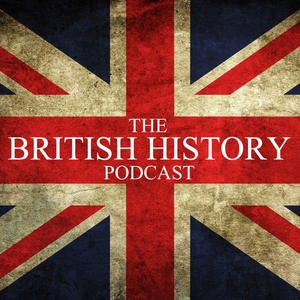
The Robin Hood Effect
08/25/21 • 12 min
George Floyd should not have died in police custody. The actions taken by Derek Chauvin were reprehensible and universally condemned by law enforcement. George Floyd was a victim of police misconduct. But he was not a hero.
In this episode we will discuss the Robin Hood Effect, where criminals are labeled heroes. From the 1300's to today society has a penchant for proclaiming the good guy bad, and the bad guy good. It's not new, or even unusual, but we need to understand it and the severe problems it can cause.
The Robin Hood Effect is when people start viewing those who act out against society as the heroes and those who traditionally protect society as the villains. There are several common factors we have seen in this phenomenon.
The Outlaw is typically seen as a victim of injustice from the government.
The Outlaw is seen as a common harmless person of good intent.
The Outlaw is sacrificing his life for a political stance.
These outlaws turned heroes become very important to political, social, or economic causes and their “fight” is generally taken up by others.
George Floyd should not have died in police custody. The actions taken by Derek Chauvin were reprehensible and universally condemned by law enforcement. George Floyd was a victim of police misconduct. But he was not a hero.
In this episode we will discuss the Robin Hood Effect, where criminals are labeled heroes. From the 1300's to today society has a penchant for proclaiming the good guy bad, and the bad guy good. It's not new, or even unusual, but we need to understand it and the severe problems it can cause.
The Robin Hood Effect is when people start viewing those who act out against society as the heroes and those who traditionally protect society as the villains. There are several common factors we have seen in this phenomenon.
The Outlaw is typically seen as a victim of injustice from the government.
The Outlaw is seen as a common harmless person of good intent.
The Outlaw is sacrificing his life for a political stance.
These outlaws turned heroes become very important to political, social, or economic causes and their “fight” is generally taken up by others.
Previous Episode

Behind the Walls with Jeff Carter
In this episode of Blue Canary we speak to jail expert Jeff Carter about the challenges of housing mentally ill prisoners.
Jeff retired December 2018 as the Deputy Director of the Fayette County Detention Center in Lexington, Kentucky. Over his 20-year career, he has worked all levels of custody inside a 1,300-bed correctional facility located in the horse racing capitol of the world. Jeff was an instructor for 5 years inside the academy, where he trained over 700 recruits, molding them into successful leaders in the Corrections field. He has trained and commanded the CERT team, as well as taught Drill and Ceremony to the Division Honor guard. While promoting through the ranks, he commanded the Professional Standards Unit where he specialized in Internal Affairs investigations and Gang Intel for 7 years. Jeff completed over 200 administrative investigations, as well as, conducted over 100 PREA (Prison Rape Elimination Act) investigations. He is well versed in PREA and is a PREA Investigator Instructor. Jeff has completed the top Leadership Academies at the National Institute of Corrections in Aurora, Colorado. He brings experience from proudly serving 4 years in the U.S. Marine Corps, followed by obtaining his BS degree in Corrections and Juvenile Services/Political Science from Eastern Kentucky University, through his career as a Corrections Leader. Jeff was a Certified Deputy Coroner within the Commonwealth of Kentucky for 8 years. He presents jail training throughout the country and serves as an Expert Witness around the United States, focusing on jail litigation.
Next Episode

The Fearless Generation
“What the hell do I do with these Millennials?”
That has to be one of the most common questions I get in my classes. Trainers and supervisors across the country are struggling to relate and deal with the millennial police officer. Well, I’ve got bad news for you. The millennials have been here for awhile and they’re not going away.
Generational Studies have been one of the go-to area of social science for a while now. With terms like the Lost Generation, The Greatest Generation, Baby Boomers, Gen X, and Millennials we have been inundated with studies and research defining people based solely on when they were born.
Many supervisors and leaders in law enforcement have been in the profession for a bit. Some of your higher-ranking officers will find themselves in their 40s and are struggling to engage with the brand new 21-year-old officer. Having heard the terms bandied about they think that any officer younger than them must be a millennial. But let’s get our definitions right before we dig into behavior.
If you like this episode you’ll love

The Women's Eye with Stacey Gualandi | Women Leaders, Entrepreneurs, Authors and Global Changemakers

The British History Podcast

Coroner Talk™ | Death Investigation Training | Police and Law Enforcement

Philosophy: The Classics

RN Health Tips from Theresa Crowley RN, for Motivation | Personal Development | Coaching
Episode Comments
Featured in these lists
Generate a badge
Get a badge for your website that links back to this episode
<a href="https://goodpods.com/podcasts/blue-canary-for-cops-by-a-cop-188495/the-robin-hood-effect-17275220"> <img src="https://storage.googleapis.com/goodpods-images-bucket/badges/generic-badge-1.svg" alt="listen to the robin hood effect on goodpods" style="width: 225px" /> </a>
Copy
